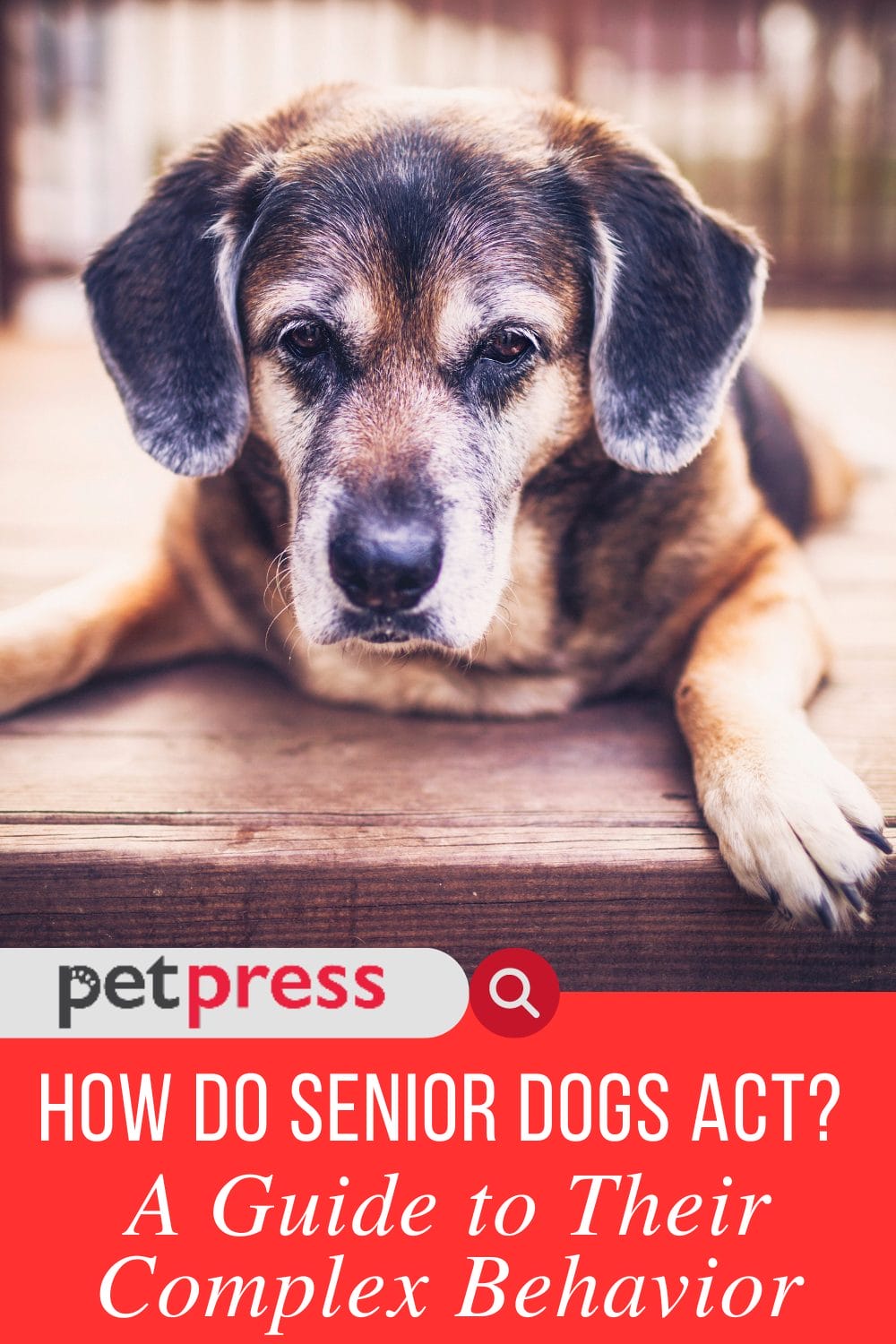
As our furry companions age, their behavior naturally evolves and changes, much like human behavior over their lifespan. If you’ve ever wondered, “How do senior dogs act differently?” you’re not alone.
Owners often notice shifts in their pet’s activity levels, sleep patterns, and overall demeanor. Understanding these changes in senior dogs is important, as they can sometimes indicate underlying health issues or are simply a natural part of growing older.
This article will explore these behavioral changes in depth, helping you better understand your aging furry friend.
Understanding Senior Dogs: An Introduction
Unlike their younger counterparts, senior dogs exhibit unique behaviors and characteristics. These subtle and gradual alterations make it challenging for owners to recognize the transition.
It’s crucial to comprehend that, just like humans, dogs undergo an aging process during which various physical and mental changes occur.
Recognizing Changes in Senior Dogs
As dogs age, they may show modifications in their physical abilities, dietary needs, and behavioral patterns. While these shifts may seem alarming initially, they’re a normal part of aging.
These changes can include decreased energy levels, increased sleep, dietary shifts, and changes in perception or cognition. Recognizing these changes can help you adapt to your companion’s evolving needs and ensure they remain comfortable and happy during their senior years.

Physical Changes in Senior Dogs
Senior dogs often experience noticeable changes in their physical appearance and energy levels. One common sign of aging is a grey muzzle, which can vary based on the breed and individual dog. Additionally, your dog’s coat is less glossy or thick than in its prime.
- Grey Muzzle and Coat Changes: A greying muzzle is a common sign of aging in dogs. Additionally, their coat may become duller and thinner.
- Decreased Energy Levels: Senior dogs often have reduced energy levels compared to their younger selves. They may be less interested in play and exercise and prefer to rest more.
- Weight Changes: Aging dogs may experience weight changes, either gaining or losing. This can be due to shifts in metabolism or changes in appetite.
- Reduced Mobility: Senior dogs often show stiffness or discomfort during movement. Arthritis is a common issue in older dogs, affecting their mobility.
- Loss of Hearing or Vision: Aging can affect a dog’s senses, leading to partial or complete loss of hearing or vision. You may notice your dog being startled easily or having trouble navigating familiar spaces.
- Dental Issues: Older dogs are more prone to plaque buildup, gum disease, and tooth loss.
- Changes in Body Composition: As they age, dogs lose muscle mass, leading to a softer body and less overall strength.
As your dog ages, they may exhibit decreased energy levels and a reduced desire for physical activity. This might mean fewer games of fetch or shorter walks.
However, while it can be difficult to see your once energetic pup slow down, adjusting expectations and managing activity levels to suit their current condition is important.
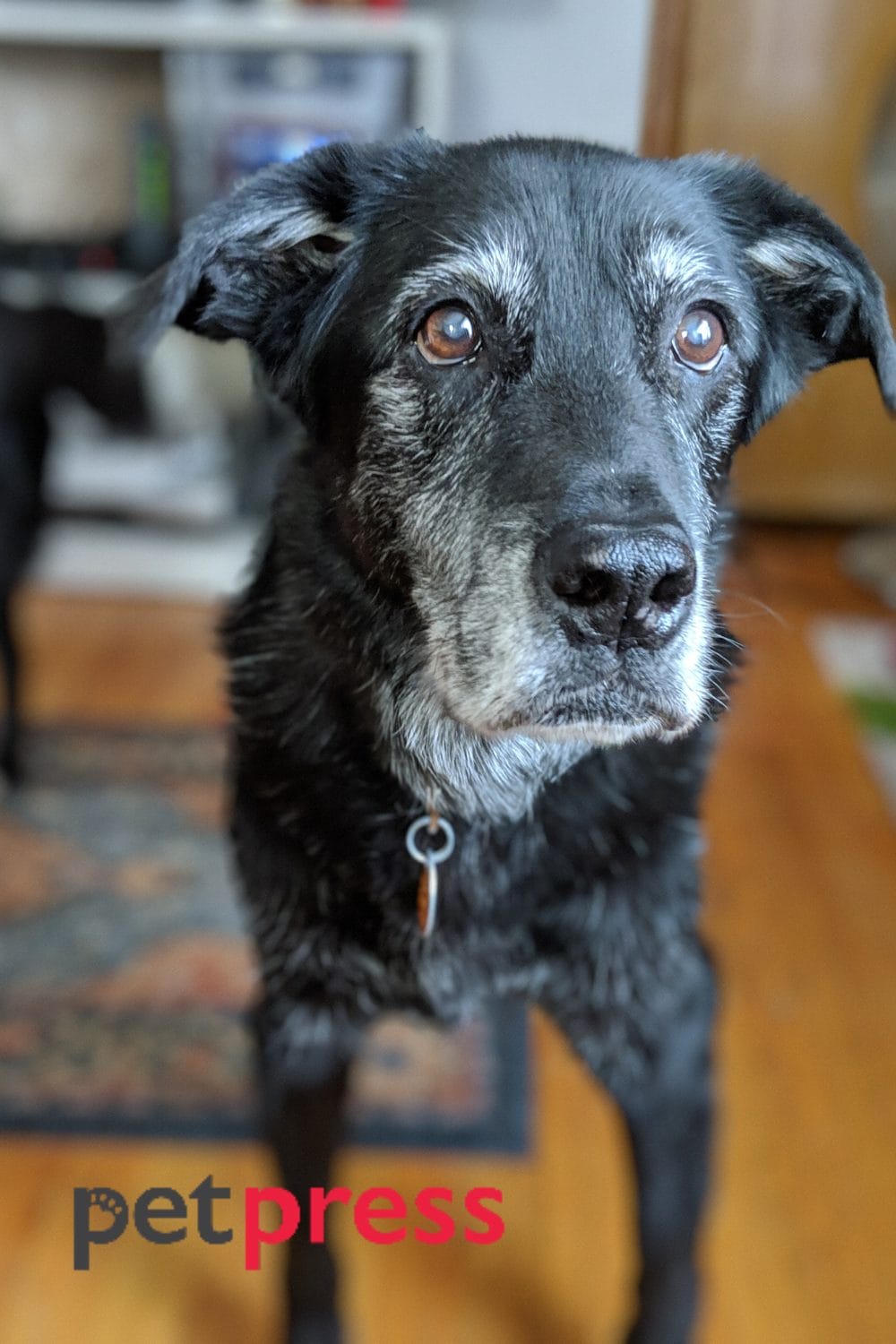
Behavioral Changes in Senior Dogs: Shift in Habits and Routines
Senior dogs often present changes in their daily routines and habits. You might notice your dog sleeping more during the day or waking up at unusual times.
Their eating habits might change, with some dogs showing less interest in food or needing smaller, more frequent meals. It’s also common for senior dogs to need more frequent bathroom breaks due to changes in bladder control.
- Increased Sleep: Senior dogs may sleep more than they did in their prime. This is a natural part of aging, similar to older people needing more rest.
- Altered Eating Habits: Changes in appetite are common in older dogs. They may eat less due to a slower metabolism or require more frequent, smaller meals due to digestive changes.
- Frequent Bathroom Breaks: Aging can affect a dog’s urinary and bowel functions, leading to increased bathroom breaks. This might include unusual instances of incontinence or difficulty urinating.
- Changes in Behavior and Mood: Your previously friendly and social dog may become withdrawn or irritable. Conversely, a typically reserved dog might seek out more attention. These changes in mood and behavior are common in senior dogs.
- Confusion or Disorientation: Senior dogs may exhibit signs of cognitive dysfunction, such as appearing lost in familiar places or difficulty performing familiar tasks.
- Increased Anxiety or Fear: Aging dogs may become more anxious or fearful, displaying signs of stress in situations they were previously comfortable with.
- Decreased Response to Commands: As dogs age, their cognitive abilities decline, and they may struggle to follow commands they once knew.
- Changes in Grooming Habits: Senior dogs may groom less frequently or have difficulty maintaining their habits due to physical discomfort or cognitive changes.
Understanding these behavioral changes can help you provide the best care for your senior dog, making their golden years as comfortable and fulfilling as possible.
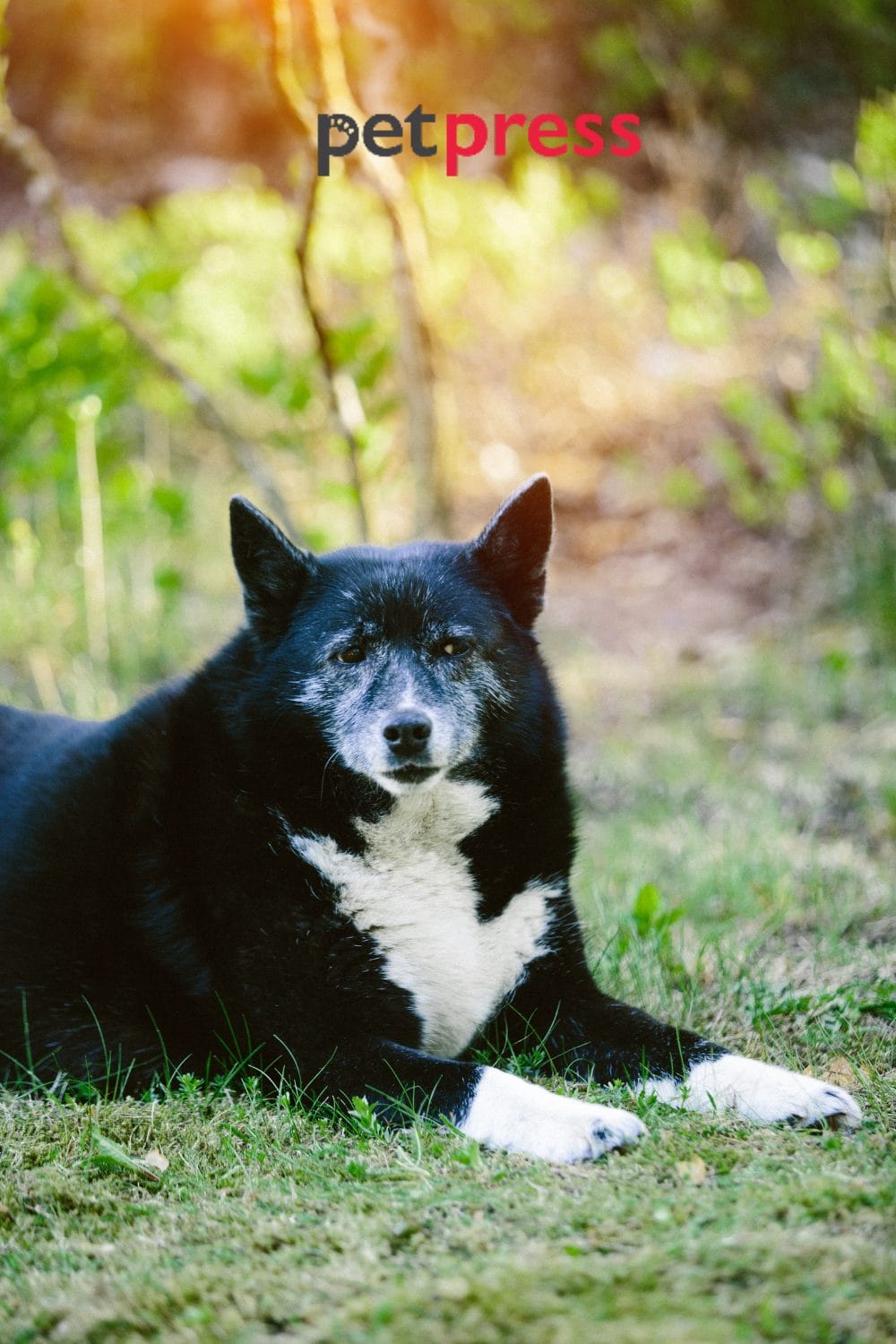
Health Changes and Common Ailments in Senior Dogs
As senior dogs age, they are more susceptible to health issues such as arthritis, diabetes, heart disease, kidney disease, and dental problems. Arthritis may cause stiffness, while heart and kidney disease can lead to decreased appetite, lethargy, and increased water consumption.
- Arthritis:
Arthritis is a degenerative joint disease that is particularly common in senior dogs. It leads to inflammation, pain, and joint stiffness, significantly impacting mobility. Dogs with arthritis may have difficulty standing, walking, or climbing stairs. - Dental Issues:
Dental problems become more prevalent in senior dogs. Plaque buildup, gum disease, and tooth decay can cause pain and discomfort. Signs of dental issues may include bad breath, drooling, and a reluctance to eat. - Cognitive Dysfunction Syndrome (CDS):
CDS is similar to dementia in humans. It affects a dog’s cognitive functions, leading to behavioral changes, disorientation, and sometimes house-soiling. Dogs with CDS may appear confused or forgetful. - Diabetes:
Diabetes is a metabolic disorder that can affect senior dogs. It occurs when the body struggles to regulate blood sugar levels. Common signs include increased thirst, frequent urination, weight loss, and lethargy. - Kidney Disease:
Senior dogs are more susceptible to kidney disease as their kidney function naturally declines with age. Symptoms may include increased water intake, frequent urination, loss of appetite, and weight loss. - Heart Disease:
Heart disease can affect senior dogs, leading to coughing, labored breathing, and exercise intolerance. It’s crucial for dogs with heart conditions to receive regular veterinary care and possibly medication to manage their condition and improve their quality of life. - Cancer:
Cancer is not uncommon in senior dogs. It can manifest in various forms, including tumors, skin issues, and abnormal growths. Early detection and treatment options depend on the type and stage of cancer. Consultation with a veterinarian is essential for proper diagnosis and treatment planning. - Vision Impairment:
Senior dogs may experience a decline in vision due to conditions like cataracts or glaucoma. Signs of vision impairment include bumping into objects, dilated pupils, and reluctance to navigate unfamiliar areas.
Recognizing these health changes and common ailments in your senior dog is crucial for their well-being. Regular vet check-ups can help detect potential problems early, manage existing conditions, and ensure your dog’s senior years are as comfortable as possible.

Caring for Senior Dogs: Adjusting Care Routines
As your dog enters their senior years, their care needs will naturally evolve. This might mean changing their diet, exercise regimen, and mental stimulation activities.
Regular vet visits become even more essential to monitor their health and promptly address emerging issues. Particular attention should be paid to their dental hygiene, as older dogs are more prone to dental problems.
Dietary Considerations for Senior Dogs
Senior dogs may need a different diet than younger dogs. Their metabolism slows, which can lead to weight gain. Talk to your vet to determine the right diet for your dog’s breed, size, and health.
- Low-Calorie, High-Quality Protein Diet: Since metabolisms slow down with age, senior dogs are prone to weight gain. A diet low in calories but high in quality protein can help maintain muscle mass while preventing obesity.
- Fiber-rich Food: A fiber-rich diet can aid digestion and prevent constipation, a common issue in senior dogs. Foods like pumpkin, sweet potatoes, and certain grains can provide the necessary fiber.
- Omega-3 Fatty Acids: These essential nutrients support brain health, maintain a shiny coat, and can help alleviate symptoms of arthritis. Fish like salmon or supplements can be good sources.
- Vitamin and Mineral Supplementation: Senior dogs can benefit from vitamins and minerals that support joint health, like glucosamine and chondroitin. Vitamin A and E can also support eye health.
- Regular Hydration: Older dogs may lose their sense of thirst, so it’s important to ensure they’re adequately hydrated. Always keep fresh water available and consider incorporating moist foods into their diet.
- Avoiding Hard-to-Digest Foods: Fatty or fried foods are hard to digest, and senior dogs’ digestive systems may struggle.
- Special Diets for Specific Conditions: Dogs with medical conditions such as diabetes, kidney disease, or heart disease may need specialized diets to manage them. Consult your vet for guidance.
Remember, every dog is unique, and what works for one might not work for another. Regular consultations with your vet will help tailor the best diet for your senior dog’s needs.
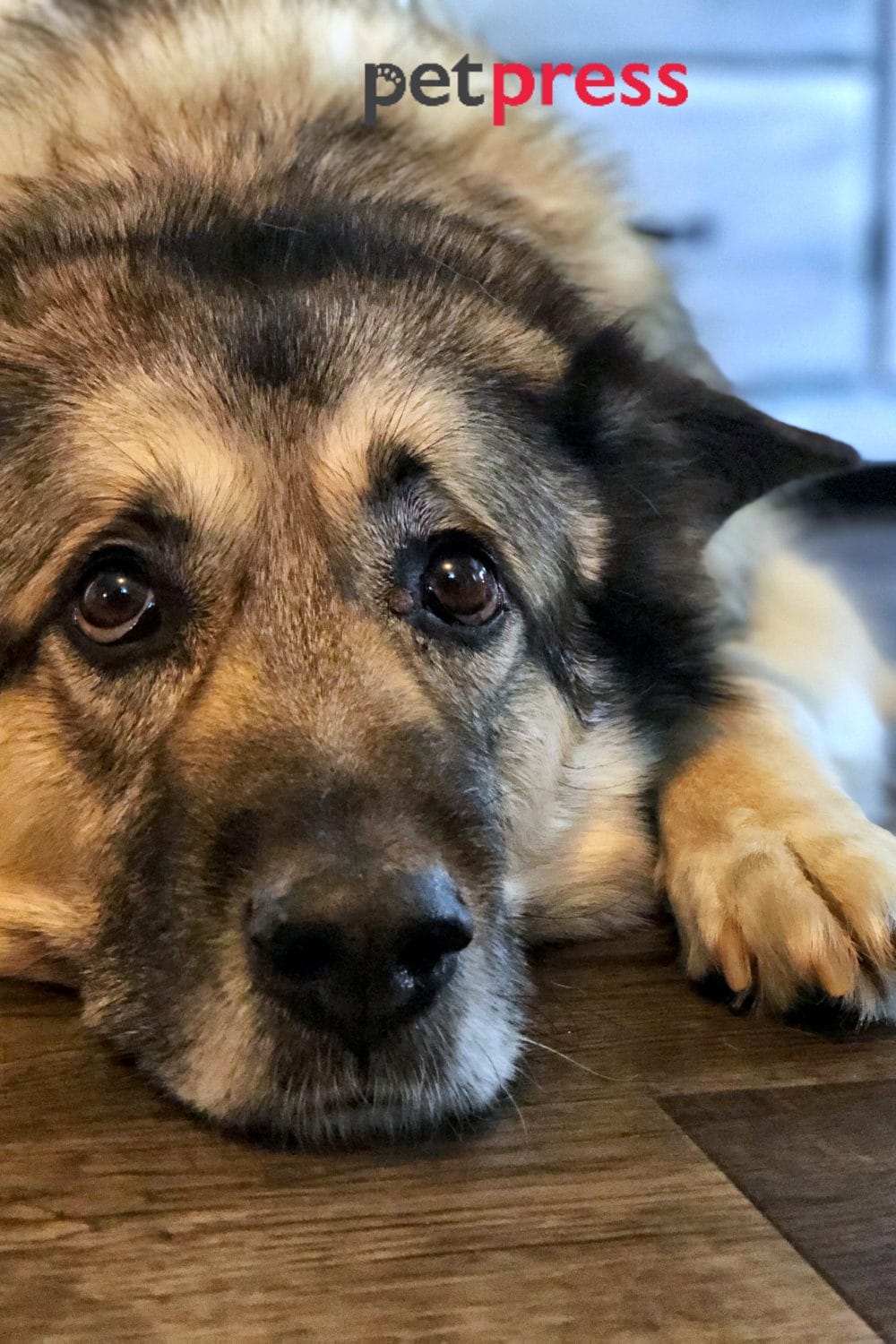
Exercise and Mental Stimulation Needs
Exercise remains crucial for senior dogs, but the intensity and duration must be adjusted. Shorter, more frequent walks can help maintain mobility without causing undue strain. Mental stimulation is equally important.
Challenge their minds with puzzle toys and keep them engaged with their environment. Every dog is unique, and their care routine should reflect their needs and preferences. Regularly assessing their comfort and happiness will help them enjoy their golden years.
Ways to Meet Exercise and Mental Stimulation Needs of Senior Dogs
- Regular Walks: Short, frequent walks can be beneficial for senior dogs. These should be less strenuous but regular to keep their joints healthy and mobile.
- Mental Stimulation Games: Engage their minds with puzzle toys, interactive games, or simple commands and tricks. This keeps their brain sharp and engaged.
- Swimming: If your vet approves, swimming can be a great low-impact exercise for senior dogs, particularly those with joint issues.
- Play Dates: Regular interaction with other dogs can provide both physical exercise and mental stimulation. Ensure these interactions are safe and comfortable for your dog.
- Indoor Play: On days when outdoor exercise isn’t possible, using toys for a gentle play session indoors can help.
- Adequate Rest: Ensure your dog has plenty of time to rest and recover after activities. Over-exercising can be harmful to their health.
- Adjustment of Activities: As your dog ages, adjust their activities to match their changing capabilities. Regularly reassess their exercise routine to keep it suitable and enjoyable.
- Sensory Stimulation: Let your dogs smell, hear, and see new things. This can be as simple as a new route on their walk or a new toy.
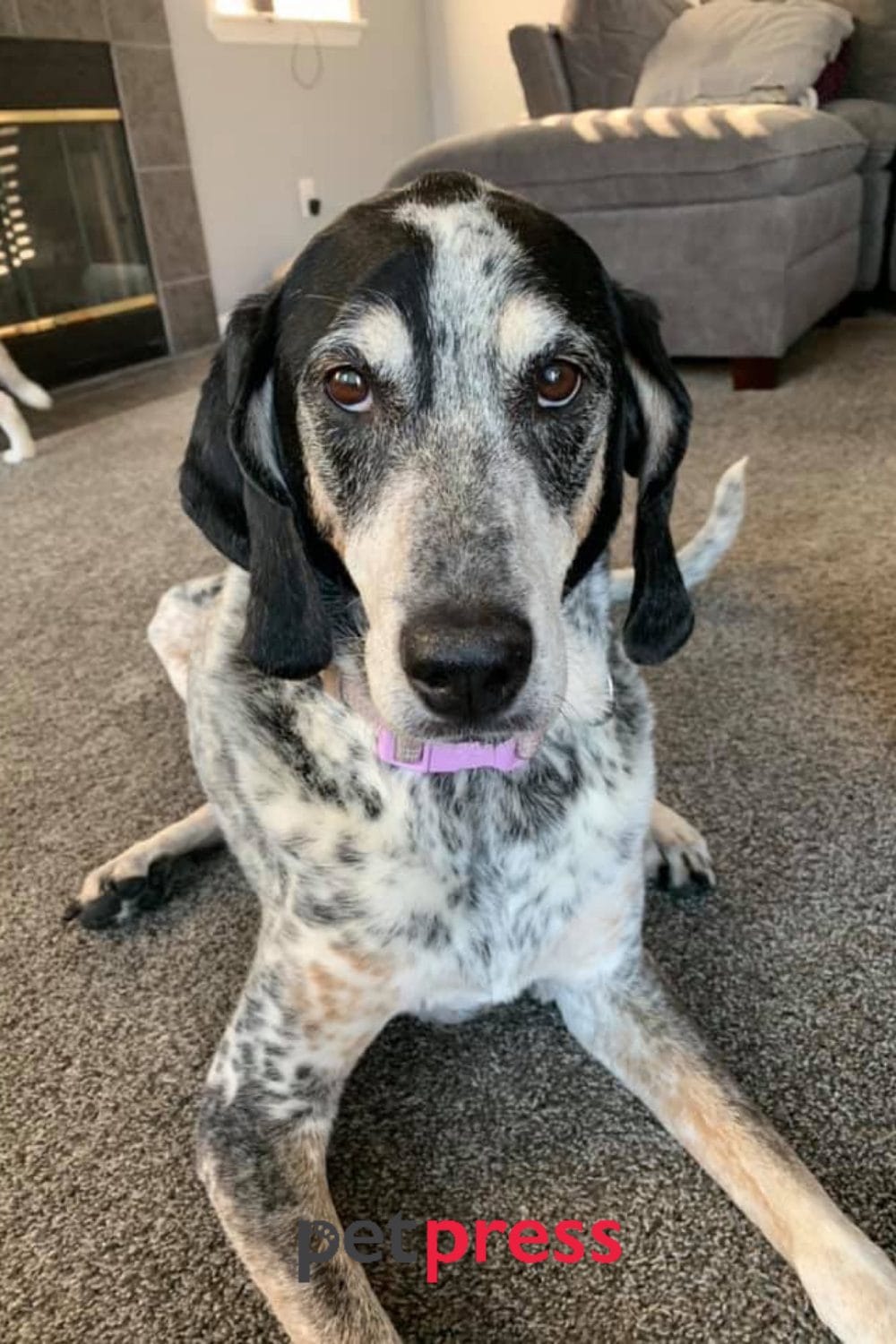
Conclusion: Embracing the Golden Years of Your Senior Dog
In conclusion, understanding the changes as dogs age can enable us to provide the best care possible for our furry friends during their senior years.
Physical changes such as a gray muzzle, decreased energy levels, and a less glossy coat are common. Behavioral changes may include altered habits, routines, and interaction levels. Health issues such as arthritis, heart disease, diabetes, and dental problems are more prevalent in older dogs.
Adjusting their care routines, including dietary considerations and exercise regimes, is crucial to these changes. Regular vet visits and monitoring for significant behavior shifts are essential to the early detection and treatment of potential health issues.
Remember, every dog is unique and requires care that reflects their needs. Above all, approach this new phase of their lives with compassion and patience. Senior dogs’ golden years can be a beautiful time of bonding and mutual understanding, enriching both of your lives.
Frequently Asked Questions about Senior Dog Care
Common signs of aging in dogs include graying muzzles, decreased energy levels, a less glossy coat, and changes in behavior and habits.
With age, dogs need less strenuous but regular exercise, including walks and play dates. Swimming and indoor play are also beneficial if approved by a vet.
Mental stimulation can come from puzzle toys, interactive games, or simple commands and tricks. Sensory stimulation, such as new walk routes or toys, is also beneficial.
Older dogs may lose their sense of thirst, making it important to ensure they’re adequately hydrated. Moist foods can help with this.
Dogs with certain medical conditions like diabetes, kidney disease, or heart disease may need specialized diets. It’s advised to consult with a vet for guidance.

Are you searching for some wonderfully charming dog quotes? Look no further!
100+ Best Funny Dog Quotes to Brighten Your Day
50 Fluffy Dog Quotes That Make Your Life Charming and Better
Unleash the 50+ Heartwarming Dog Quotes That Touch the Heart
- Does Cat Litter Melt Ice? The Complete Guide to Winter Safety - January 30, 2026
- Happy Tail Dogs: Understanding This Common Canine Condition - January 29, 2026
- How Cold Can Outdoor Cats Handle? Feline Winter Safety - January 27, 2026


GIPHY App Key not set. Please check settings